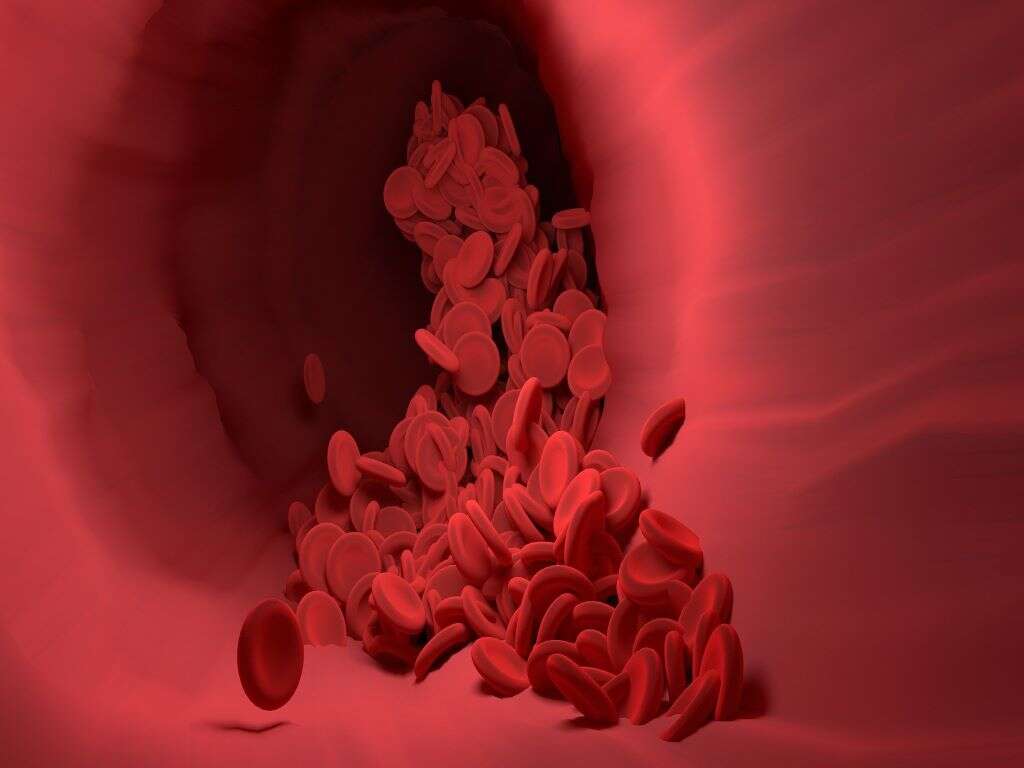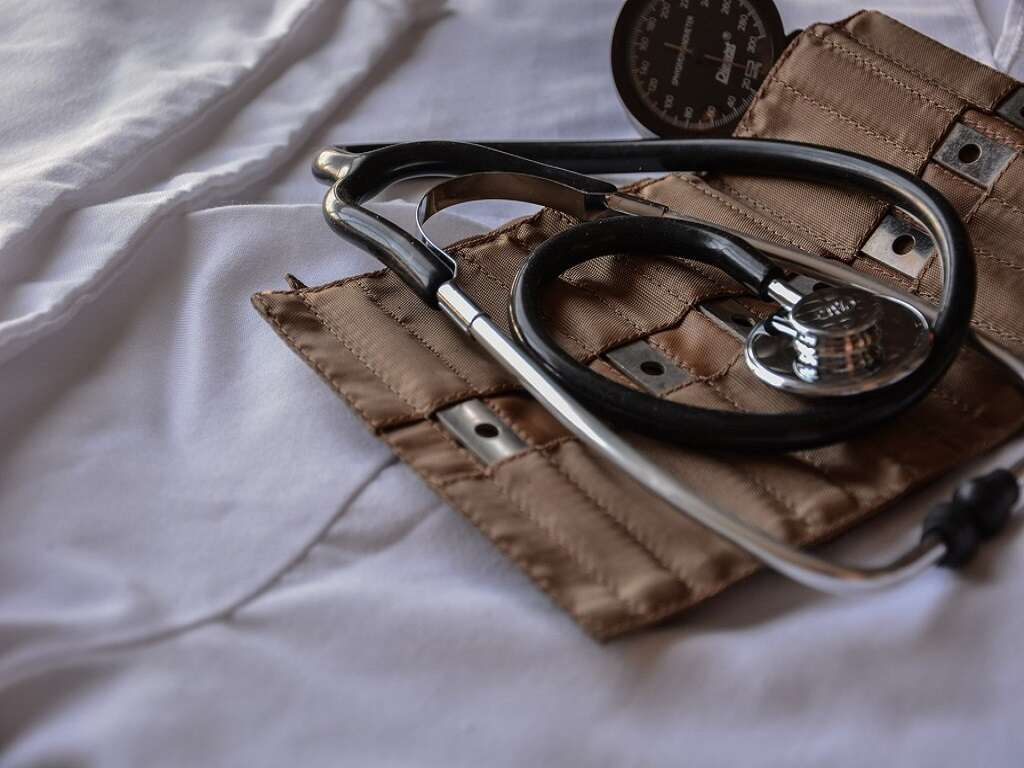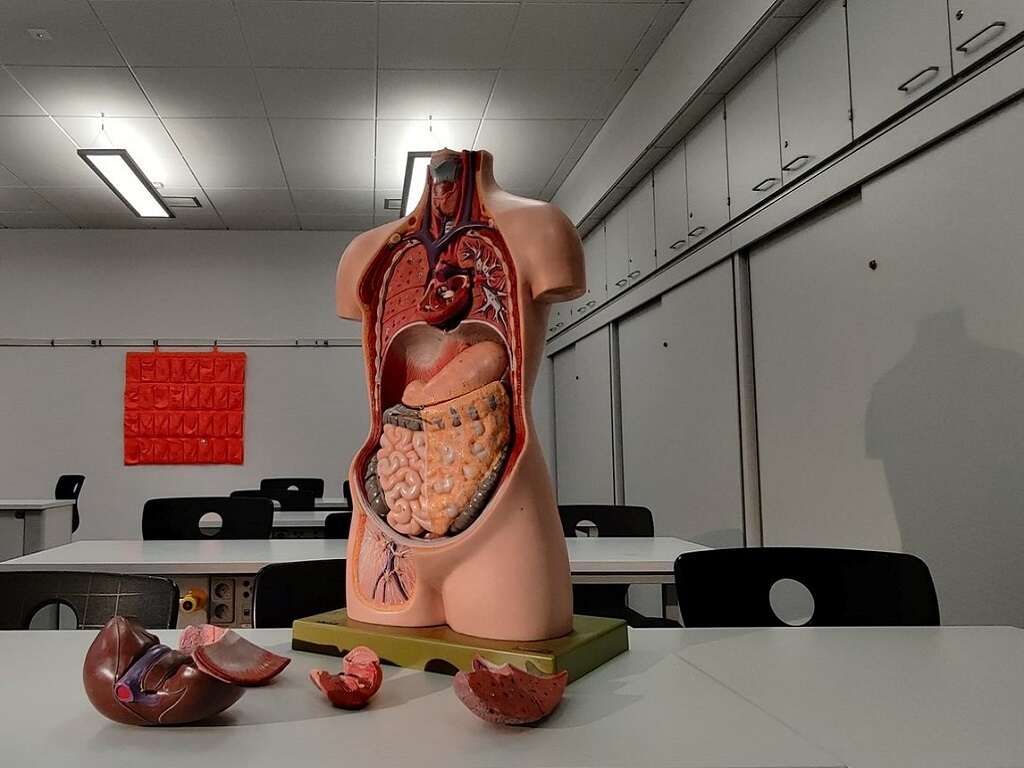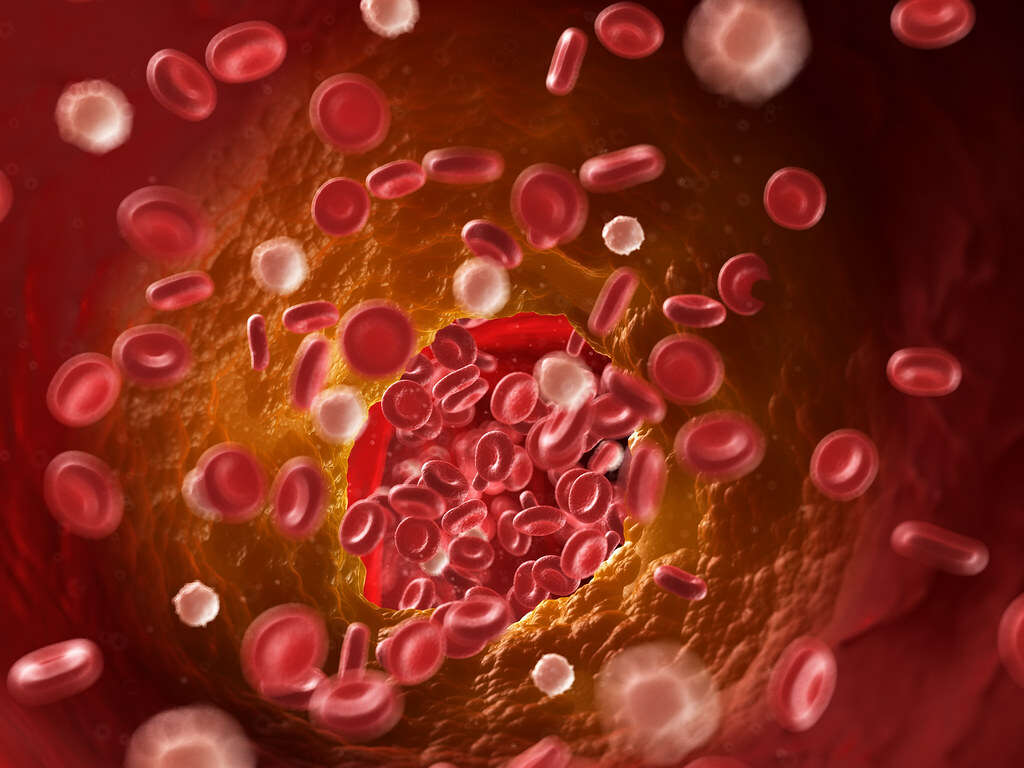10 Causes of Bloody Stool
 Article Sources
Article Sources
- 1. 'Rectal Bleeding: Causes, Colors, Tests & When To Call The Doctor.' Cleveland Clinic, my.clevelandclinic.org/health/symptoms/14612-rectal-bleeding.
- 2. Wilkins, Thad, et al. 'Diverticular Bleeding.' American Family Physician, 1 Nov. 2009, www.aafp.org/afp/2009/1101/p977.html.
- 3. Rectal Bleeding Causes. Mayo Clinic, Mayo Foundation for Medical Education and Research, 4 Mar. 2020, www.mayoclinic.org/symptoms/rectal-bleeding/basics/causes/sym-20050740.
- 4. 'Understanding Minor Rectal Bleeding, What are the possible causes of minor rectal bleeding.' American Society for Gastrointestinal Endoscopy, asge.org/home/for-patients/patient-information/understanding-minor-rectal-bleeding
- 5. 'Inflammatory Bowel Disease (IBD).' Mayo Clinic, Mayo Foundation for Medical Education and Research, 7 Nov. 2020, www.mayoclinic.org/diseases-conditions/inflammatory-bowel-disease/symptoms-causes/syc-20353315.
- 6. 'Colon Cancer.' Mayo Clinic, Mayo Foundation for Medical Education and Research, 16 Mar. 2021, www.mayoclinic.org/diseases-conditions/colon-cancer/symptoms-causes/syc-20353669.
- 7. 'Colon Cancer.' Mayo Clinic, Mayo Foundation for Medical Education and Research, 16 Mar. 2021, www.mayoclinic.org/diseases-conditions/colon-cancer/diagnosis-treatment/drc-20353674.
- 8. 'Proctitis.' Mayo Clinic, mayoclinic.org/diseases-conditions/proctitis/diagnosis-treatment/drc-20376938
- 9. 'Blood When I Wipe: 11 Causes of Rectal Bleeding.' Medical News Today, MediLexicon International, www.medicalnewstoday.com/articles/321023.
- 10. 'Symptoms & Causes of Peptic Ulcers (Stomach Ulcers).'National Institute of Diabetes and Digestive and Kidney Diseases, U.S. Department of Health and Human Services, 1 Nov. 2014, www.niddk.nih.gov/health-information/digestive-diseases/peptic-ulcers-stomach-ulcers/symptoms-causes.
- 11. 'Gastroenteritis: Stomach Flu.' MedlinePlus, U.S. National Library of Medicine, 24 July 2019, medlineplus.gov/gastroenteritis.html.
Blood in the stool can be a disturbing discovery, with several concerning medical conditions including bloody stool as a symptom. Some of these conditions may be minor while others can be more serious. Blood in the stool often originates with diseases of the lower digestive tract.
When an individual experiences bloody stool, it is important to see a doctor for an evaluation as soon as possible. The patient’s medical history, a physical examination, and diagnostic tests can help the health care provider determine the symptom’s cause and possible treatment options.
1. Anal Fissures
An anal fissure or tear in the skin around the anus can be a reason for blood in the stool.1‘Rectal Bleeding: Causes, Colors, Tests & When To Call The Doctor.’ Cleveland Clinic, my.clevelandclinic.org/health/symptoms/14612-rectal-bleeding. Anal fissures are not unusual and can occur in people of any age. Anal fissures can occur when hard stool exerts extra pressure on the anal area during a bowel movement.
The pressure from bowel movements can cause the skin around the anus to stretch and split. The tear in the skin causes a burning sensation during bowel movements and bloody stool. While they are painful when they happen, and the blood can be alarming, anal fissures typically heal over time.
2. Anal Fistula/Abscess
When an anal gland gets infected with pus or becomes abscessed, an anal fistula can develop. The fistula resembles a tiny tunnel that connects the abscess to the skin around the anus.1‘Rectal Bleeding: Causes, Colors, Tests & When To Call The Doctor.’ Cleveland Clinic, my.clevelandclinic.org/health/symptoms/14612-rectal-bleeding.
Causes of anal fistulas include Crohn’s disease, inflammatory bowel disease, tuberculosis, radiation therapy for cancer, and injuries. Anal fistulas can cause pus in the stool, and in some cases, bright red blood can be present on the surface of the bowel movement.

3. Diverticulosis and Diverticulitis
Diverticulosis is a condition where small, bulging pouches develop in the digestive tract.1‘Rectal Bleeding: Causes, Colors, Tests & When To Call The Doctor.’ Cleveland Clinic, my.clevelandclinic.org/health/symptoms/14612-rectal-bleeding. Sometimes these pouches become inflamed or infected, a development called diverticulitis. Diverticular disease can cause bloody stools.
Diverticular disease is a common cause of bleeding in the lower intestinal tract.2Wilkins, Thad, et al. ‘Diverticular Bleeding.’ American Family Physician, 1 Nov. 2009, www.aafp.org/afp/2009/1101/p977.html. Diverticular bleeding can resolve on its own, but in some cases, a patient can be at risk of losing a significant amount of blood and require medical treatment. The treatments for diverticular disease include fiber, probiotics, and medication.
4. Hemorrhoids
Hemorrhoids, a common cause of blood in the stool, may be internal or external. External hemorrhoids occur under the skin around the anus, and internal hemorrhoids can be inside the rectum.1‘Rectal Bleeding: Causes, Colors, Tests & When To Call The Doctor.’ Cleveland Clinic, my.clevelandclinic.org/health/symptoms/14612-rectal-bleeding.
Symptoms of external hemorrhoids include itching, pain, swelling around the anus, and bleeding. An individual may be unaware of internal hemorrhoids, but straining during a bowel movement may result in blood on toilet tissue or blood in the stool. Treatments include fiber to avoid constipation, topical creams, sitz baths, and pain medication.

5. Inflammatory Bowel Disease
Crohn’s disease and ulcerative colitis are inflammatory bowel diseases.5‘Inflammatory Bowel Disease (IBD).’ Mayo Clinic, Mayo Foundation for Medical Education and Research, 7 Nov. 2020, www.mayoclinic.org/diseases-conditions/inflammatory-bowel-disease/symptoms-causes/syc-20353315. Crohn’s is caused by inflammation in the lining of the digestive tract, and ulcerative colitis is caused by inflammation in the lining of the colon and rectum.
People with Crohn’s and ulcerative colitis may experience pain in the abdomen, bleeding, diarrhea, and fatigue. The symptoms can range from mild to severe. Left untreated, the conditions can be life-threatening due to weight loss and bleeding. Treatments include dietary changes, medication, and surgery.
6. Colon Cancer
Colon cancer affects the large intestine and is a leading cause of cancer deaths.5‘Inflammatory Bowel Disease (IBD).’ Mayo Clinic, Mayo Foundation for Medical Education and Research, 7 Nov. 2020, www.mayoclinic.org/diseases-conditions/inflammatory-bowel-disease/symptoms-causes/syc-20353315. Colon cancer typically takes several years to develop from colon polyps. One of the signs of colon cancer is blood in the stool.
Diagnosing colon cancer requires a colonoscopy.7‘Colon Cancer.’ Mayo Clinic, Mayo Foundation for Medical Education and Research, 16 Mar. 2021, www.mayoclinic.org/diseases-conditions/colon-cancer/diagnosis-treatment/drc-20353674. The physician inserts a flexible tube with a video camera to examine the inside of the colon. Treatments for colon cancer include surgery, chemotherapy, and radiation therapy.
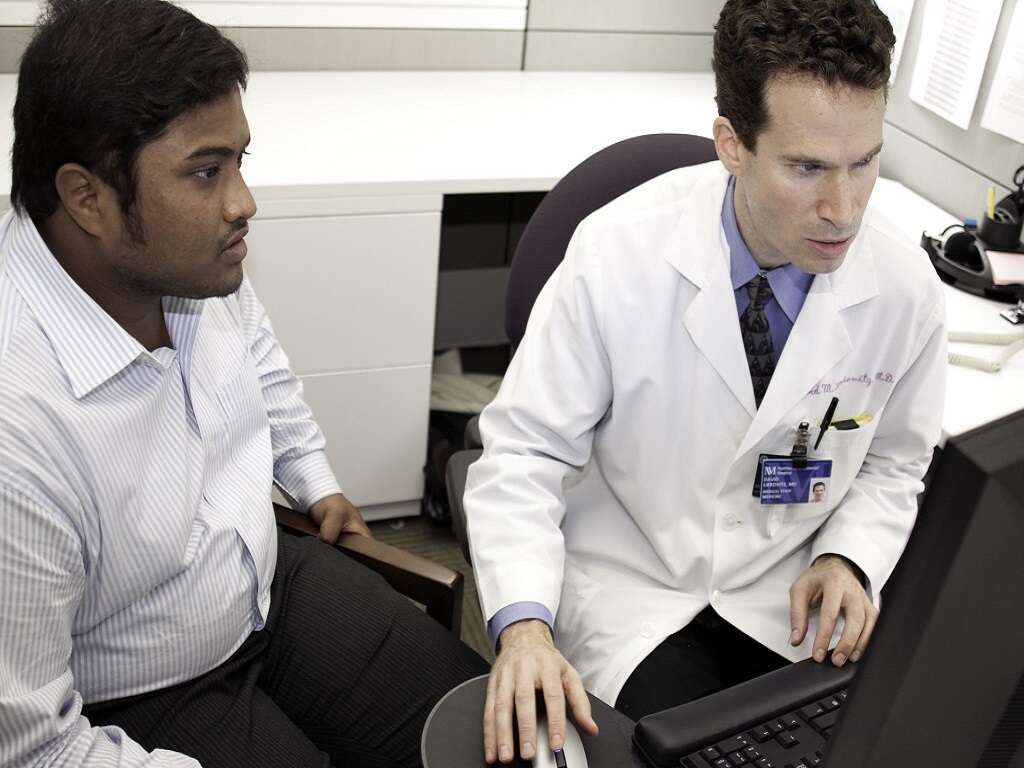
7. Polyps
Colon polyps are benign growths that appear on the inner walls of the colon or large intestine.8‘Proctitis.’ Mayo Clinic, mayoclinic.org/diseases-conditions/proctitis/diagnosis-treatment/drc-20376938 Colon polyps can cause blood in the stool.3Rectal Bleeding Causes. Mayo Clinic, Mayo Foundation for Medical Education and Research, 4 Mar. 2020, www.mayoclinic.org/symptoms/rectal-bleeding/basics/causes/sym-20050740. A gastroenterologist performs a colonoscopy to diagnose colon polyps.
Since small polyps are usually easy to remove during a screening or diagnostic colonoscopy, the gastroenterologist will remove them and send the tissue samples to a lab to be checked for cancer. When polyps are left alone, they can lead to colon cancer.
8. Proctitis
Proctitis can happen when the lining of the rectum becomes inflamed.8‘Proctitis.’ Mayo Clinic, mayoclinic.org/diseases-conditions/proctitis/diagnosis-treatment/drc-20376938 Causes include radiation treatment for cancer, infections, medications, and inflammatory bowel disease. Individuals with proctitis may experience frequent urges to have bowel movements. They have pain in the anus and rectum and may observe mucus and bloody stool.
Treatments for the condition include antibiotics or antivirals, depending on the cause of the infection, and stool softeners. In some cases, surgery is required to remove bleeding tissue.

9. Gastroenteritis
Gastroenteritis, sometimes called the stomach flu, is stomach or colon inflammation caused by bacterial or viral infections.11‘Gastroenteritis: Stomach Flu.’ MedlinePlus, U.S. National Library of Medicine, 24 July 2019, medlineplus.gov/gastroenteritis.html. Symptoms may include fever, nausea, headache, and watery diarrhea, and can range from mild to severe.
Viruses that cause gastroenteritis do not typically cause bloody diarrhea. However, persons with gastroenteritis caused by E. Coli or Salmonella can experience bloody stools. Treatments for gastroenteritis include medications and antibiotics.9‘Blood When I Wipe: 11 Causes of Rectal Bleeding.’ Medical News Today, MediLexicon International, www.medicalnewstoday.com/articles/321023. Rehydration replaces fluid lost due to diarrhea.
10. Stomach Ulcers
Ulcers are sores that can occur in the digestive tract.10‘Symptoms & Causes of Peptic Ulcers (Stomach Ulcers).’National Institute of Diabetes and Digestive and Kidney Diseases, U.S. Department of Health and Human Services, 1 Nov. 2014, www.niddk.nih.gov/health-information/digestive-diseases/peptic-ulcers-stomach-ulcers/symptoms-causes. Often associated with the stomach, it is not unusual for ulcers to bleed. Blood in the stool that originates from stomach ulcers can appear black. The dark color is due to the reaction with digestive fluids.
H. Pylori bacterium and nonsteroidal anti-inflammatory drugs (NSAIDs), including aspirin and ibuprofen, can cause stomach ulcers. Treatments for ulcers include antibiotics and other medications. The doctor may recommend that a patient stop taking NSAIDs.


